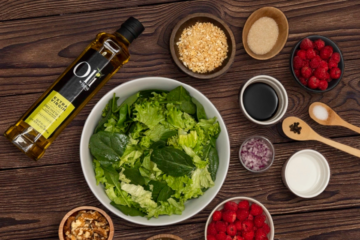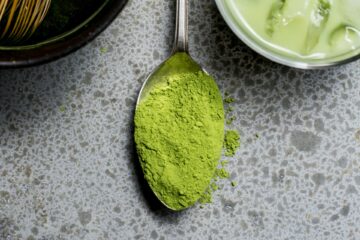Scouring the internet for new shrimp recipes because you have acquired a taste for this delicious delicacy? Or maybe you’ve wondered how exactly does lime cook shrimp when most other foods are cooked overheat.
In the United States, shrimp is the most popular seafood, and it’s not too difficult to see why. Shrimp has long established itself in the culinary world as a classy and exquisite dish; loved not only for its taste but also its versatility.
Shrimp is also packed with healthy nutrients; from providing antioxidants to selenium, shrimp does plenty to protect and heal the body faster.
How Does Lime Cook Shrimp?
A popular question among shrimp lovers is: how does lime cook shrimp?
Identifying uncooked shrimp is easy; uncooked shrimp has a translucent color with a bluish tint, while properly cooked seafood is a white pinkish color. This color change can be likened to what happens to fruits when they ripen; e.g., unripe and ripe bananas, unripe and ripe oranges.
There are many ways to cook shrimp, and cooking it with fruit (lemon/lime) might come as a shock to newbies in the kitchen. The science behind how lime cooks shrimp is not complicated and can be explained away with some basic knowledge of how citric acids work.
The citric acid in lime cooks shrimp by breaking down the proteins in the meat. Lime juice kills the bacteria in shrimp and during cooking, the translucent color of shrimp changes to a whitish color, much like the pale pink color of fish changes to white during cooking. Or, how an egg yolk is yellow as an uncooked egg and turns grey after cooking.
So, does lime cook shrimp? Yes, this innovative method of cooking shrimp can be likened to how ovens work, although cooking with oven heat yields a much different result than cooking with lemon.
How Long Can You Marinate Shrimp in Lime Juice?
If you are using lime or lemon juice to marinate shrimp, you should not let it sit in the lemon juice for longer than 10-20 minutes. Marinate the shrimp for too long in lemon juice, and it might turn out too sour.
Before marinating shrimp in lime juice, you can add some pepper, salt, garlic, and olive oil to your shrimp. After fully coating the shrimp, allow it to sit in the lime juice for 10 – 20 minutes.
We do not recommend that you leave shrimp to marinate in lime juice overnight. The lime juice will cook your shrimp until the texture changes to rubbery.
Chemical Reactions Between Lime and Shrimp
When it comes to cooking shrimp with lime, understanding the chemical reactions between these two ingredients is essential. Shrimp is a type of shellfish that contains proteins and enzymes that are sensitive to acidity. Lime, on the other hand, is a citrus fruit that is high in citric acid, which gives it its sour taste.
When lime juice is added to shrimp, the citric acid begins to break down the shrimp’s proteins, resulting in a change in texture and flavor. Specifically, the acid causes the proteins to denature, which means that they unravel and lose their shape. As a result, the shrimp becomes more tender and takes on a slightly firmer texture.
In addition to affecting the texture of shrimp, lime also plays a role in enhancing its flavor. The acidity of lime juice can balance out the sweetness of the shrimp, making it taste more savory and satisfying. Additionally, the tartness of the lime can help to cut through the richness of the shrimp, making it a refreshing and flavorful addition to any recipe.
It’s worth noting that while lime can be a great ingredient for cooking shrimp, it’s important to use it in moderation. Too much acid can lead to overcooked or rubbery shrimp, and can even cause the shrimp to become mushy or disintegrate. As a general rule of thumb, it’s best to use just enough lime to add flavor and texture, without overpowering the natural flavor of the shrimp.
Lime in Shrimp Marinades
One of the most popular ways to use lime when cooking shrimp is by incorporating it into a marinade. Lime juice is a natural tenderizer, meaning that it can help to break down the tough fibers in the shrimp and make it more tender and flavorful. Additionally, the acidity of the lime can help to infuse the shrimp with a tangy, citrusy flavor that complements its natural sweetness.
To create a shrimp marinade with lime, start by combining fresh lime juice, olive oil, and a few seasonings of your choice in a bowl. Some popular seasonings to pair with lime include garlic, chili powder, cilantro, and cumin. Whisk the ingredients together until they are fully combined and then add your shrimp to the bowl. Allow the shrimp to marinate in the mixture for at least 30 minutes before cooking.
When marinating shrimp with lime, it’s important not to leave it in the mixture for too long. Over-marinating can cause the shrimp to become mushy or overly acidic, which can detract from its natural flavor. Aim for a maximum of two hours in the marinade, and be sure to keep the shrimp in the refrigerator while it marinates to prevent any harmful bacteria from growing.
Another tip for marinating shrimp with lime is to use fresh lime juice instead of bottled juice. Fresh lime juice has a brighter, more vibrant flavor that can really enhance the taste of the shrimp. Additionally, be sure to use a high-quality olive oil to help the marinade adhere to the shrimp and create a rich, flavorful coating.
Cooking Shrimp with Lime
Cooking shrimp with lime can be a delicious and healthy way to enjoy this versatile seafood. There are several different methods for cooking shrimp with lime, each of which can yield slightly different results in terms of flavor and texture.
One popular method for cooking shrimp with lime is grilling. To grill shrimp with lime, start by marinating the shrimp in a mixture of lime juice, olive oil, and your favorite seasonings for at least 30 minutes. Preheat your grill to medium-high heat and lightly oil the grates. Place the shrimp on the grill and cook for 2-3 minutes per side, or until they are pink and cooked through. Squeeze fresh lime juice over the shrimp just before serving to add an extra burst of citrusy flavor.
Another option for cooking shrimp with lime is sautéing. To sauté shrimp with lime, start by heating a tablespoon of olive oil in a large skillet over medium-high heat. Add the shrimp and sauté for 2-3 minutes, or until they are pink and cooked through. Squeeze fresh lime juice over the shrimp just before serving and garnish with fresh cilantro or parsley for added flavor.
If you prefer to boil your shrimp, you can still incorporate lime into the recipe. Simply add a few slices of lime to the boiling water along with the shrimp and cook for 2-3 minutes, or until the shrimp are pink and cooked through. The lime will infuse the shrimp with a bright, citrusy flavor that pairs well with a variety of different dipping sauces.
Finally, if you’re in the mood for something quick and easy, try making lime shrimp tacos. Start by sautéing the shrimp with lime in a skillet and then serving them on a warm tortilla with your favorite toppings, such as avocado, salsa, and shredded cheese. This simple yet delicious recipe is perfect for a quick weeknight meal or a casual get-together with friends.
How Long to Cook Shrimp in Lemon Juice?
Perhaps you decided to wing cooking your shrimp meal, and you’re left with a plate of seriously overcooked shrimp or rubbery, undercooked shrimp.
The texture of your finished product largely depends on personal preference, but depending on the size of shrimp you’re working with, you can cook your shrimp in lime or lemon juice for anything between 15 minutes to an hour.
We would recommend leaving your small shrimps in a bowl of fresh lime juice for 15 minutes. Less than this and you run the risk of undercooked shrimp. Anything more and your shrimp could be overcooked, tough, and dry.
How to Tell When Shrimp Ceviche Is Done?
Shrimp ceviche is traditionally made by cooking shrimp in lime or lemon juice. Cooking your shrimp with this technique requires accurate timekeeping skills and the right ingredients. For the lemon/lime juice method to work, you must only use fresh, full-strength lime or lemon juice. Soak your shrimp in the fresh lemon or lime juice for 15-30 minutes and allow to “cook”.
Watch out for the color of the shrimp which will change to light pink, and the texture will remain firm. Properly cooked shrimp will curl up, giving it a different shape than raw or not well-cooked shrimp.
Does Lime Fully Cook Shrimp?
Once raw shrimp sits in lime juice for at least 15 minutes, it starts to cook. The shrimp will not cook as it will with heat, and it is still technically raw, but lime juice will cause shrimp to undergo denaturation.
The denaturation process requires only something acidic such as lime or lemon juice and answers the question of how does lime cook shrimp.
Read also: What to Put in Ramen Instead of Seasoning
Can you Overcook Shrimp in Lime Juice?
Yes, overcooked shrimp will look very different from shrimp that has been cooked to perfection. Overcooked shrimp curls up into very tight balls, with a different texture.
Make sure you stick to cooking shrimp for the right amount of time; you may follow a recipe that details how to cook shrimp the size of the ones you’re working with.
Is it Safe to eat Shrimp in Lime Juice?
It is safe to eat shrimp cooked in lime juice. Shrimp ceviche is a highly popularized meal in some countries.
However, lime juice does not completely kill all the harmful bacteria, microorganisms, and parasites in shrimp. Concentrated lime juice does a good job eliminating most of these harmful bacteria, but it is not potent enough to completely kill microorganisms.
Children, pregnant women, and the elderly ought to exercise caution when eating shrimp cooked with lime.
Read also: Why Is My Spaghetti Sauce Watery?
Does lime juice and salt cook shrimp?
Lime juice and salt can “cook” shrimp in a way that is similar to ceviche. When shrimp is marinated in lime juice, the acid in the lime juice causes the proteins in the shrimp to denature and coagulate, resulting in a texture that is firm and opaque. This is similar to what happens when shrimp is cooked with heat, although the texture of “cooked” shrimp in lime juice will be different from the texture of shrimp that is cooked with heat.
Adding salt to the lime juice can enhance the flavor of the shrimp and also help to draw out excess moisture, which can make the shrimp firmer and more flavorful. However, it’s worth noting that while shrimp that is marinated in lime juice and salt may appear “cooked,” it is not fully cooked in the traditional sense and may not be safe to eat raw.
If you want to try making shrimp with lime juice and salt, it’s important to use fresh, high-quality ingredients and to handle the shrimp carefully to avoid any risk of contamination. Additionally, it’s recommended to let the shrimp marinate in the lime juice and salt mixture for at least 30 minutes to ensure that it is safe to eat.
Why is my Shrimp Tough?
Tough or rubbery shrimp is a result of overcooking. Follow a recipe when you cook shrimp for the first time or pay attention to the color changing from translucent to pale pink. The shape of properly cooked shrimp is also very telling; well-cooked shrimp has a curved shape, while overcooked shrimp is tightly curled.
Shrimp is delicious, but you must be careful to only eat shrimp that have been properly cooked; with lime or with heat. Eating uncooked shrimp can lead to food poisoning, so make sure you examine the color of your shrimp – whether you order a plate at a restaurant, or you try your hand at cooking your shrimp at home.





